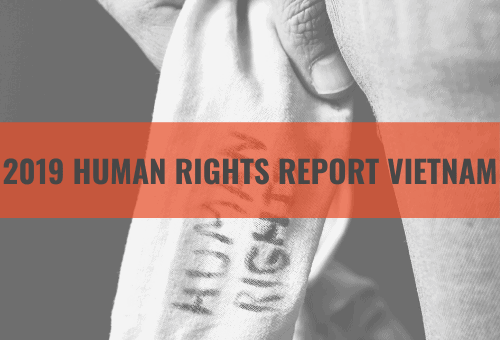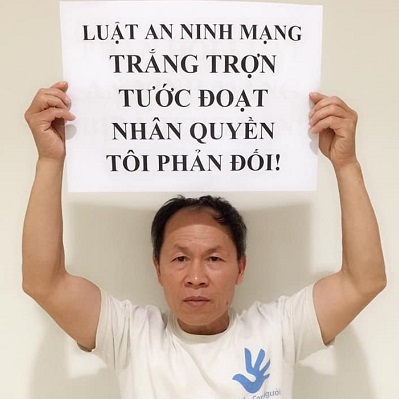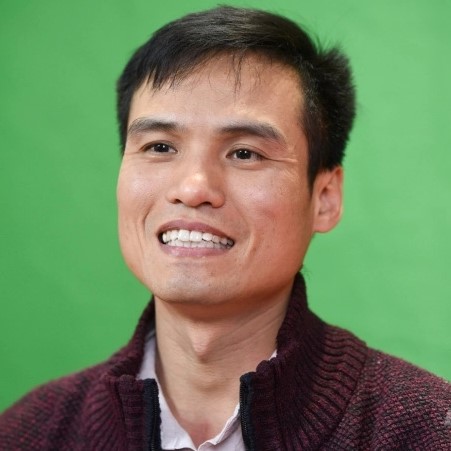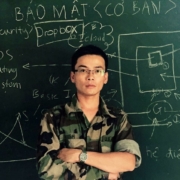Vietnam Free Expression Newsletter No. 24/2024 – Week of June 10-17
Greetings from Project88. We bring you news, analysis, and actions regarding human rights and civil society in Vietnam during the week of June 10-17.
Ethnic minority rights activist Y Quynh Bdap’s Bangkok arrest has been verified, and evidence points to Vietnam having made an extradition request.
A political prisoner was released one year early from prison for unknown reasons. Another has allegedly been subsisting off of only scraps of food from fellow inmates for the past four years. Vietnam continues bolstering ties with the U.S., China, and Russia alike, instilling doubt in the notion that the U.S. can sway Vietnam away from its other diplomatic relationships.
***
Project88 is seeking a new Board member to support us as we continue to deliver on our mission to defend embattled human rights activists—people who we view as the agents of progressive social change. Learn more here.
HUMAN RIGHTS & CIVIL SOCIETY

Y Quynh Bdap
Y Quynh Bdap’s arrest, as we reported last week, has been verified by VOA, RFA and AP. Quynh was detained a day after meeting with Canadian representatives at the embassy about his asylum application. He was arrested in response to a request by the foreign affairs office of the Thai public prosecutor, and the arrest warrant cited his conviction on terrorism charges, suggesting an extradition request had been made by Vietnam. Bdap is currently being held in pre-trial detention at Bangkok Remand Prison and faces imminent extradition to Vietnam, where he faces ten years behind bars.
Y Quynh Bdap’s arrest and potential extradition come at a time when transnational repression appears to be a growing issue. In remarks delivered this week, UN High Commissioner for Human Rights Volker Türk, noted that in Southeast Asia, “there is a pattern emerging of transnational repression whereby human rights defenders seeking refuge in neighbouring countries have been subject to rendition and refoulement or disappeared and even killed. There are indications this trend may be becoming a global one and so I urge all States to have zero tolerance for such actions and to ensure full accountability of their security forces.” Canada so far has remained silent on Bdap’s detention.
Project88 has released an in-depth press statement on Y Quynh Bdap calling on Canada to take immediate action to secure his release, which can be accessed here, along with a brief video interview we made of Y Quynh speaking in his own words.

Dang Dang Phuoc
Music teacher Dang Dang Phuoc was able to call home for the first time in two months. His wife, Le Thi Ha, said that in the June 12 call, her husband gave more details about why he was shackled for 10 days after her visit on May 9. Before she left the visiting room that day, he gave her a small piece of paper containing the phone number of an inmate who’d just been transferred to Xuan Phuoc Prison, to be passed to his family so they’d know where he was. In Vietnam, families rarely are notified when a prisoner is transferred to a new prison facility. Immediately afterwards, Phuoc was taken to the office and ordered to write a “confession letter”; in it, he said he knew his action was against prison rules but thought it was only a minor infraction. The warden allegedly took a vote from all of Phuoc’s cellmates (about 26 people), and everyone agreed that his action only warranted a minor disciplinary response. Nevertheless, Phuoc was still put in shackles and kept in isolation. During those 10 days, Phuoc refused to eat to protest the unfair treatment and lost 10 kg., according to his wife. And although just one leg was shackled, after five days, his ankle became severely swollen and required medical attention. After a visit by the prison medical staff, the shackle was removed and transferred to his other leg for the remaining five days.
In a bit of good news, Ha told her husband that she was able to go to Saigon to attend their son’s graduation ceremony. However, not long after she returned to Buon Me Thuot in the Central Highlands, Ha received a summons from Phu Yen provincial police (200Km away) to appear “in person” on June 7 to resolve the issues she cited in the letter she wrote to them on June 2, asking why her husband had been disciplined. Ha said it seemed absurd that they could not simply respond to her by a letter like they’d done many times before instead of requiring her to travel such a long distance.

Vuong Van Tha
Religious prisoner Vuong Van Tha, seven years into his 11-year sentence under Article 88 for allegedly disseminating anti-state propaganda, has allegedly not eaten prison food for at least four years, his daughter Vuong Ngoc Thao told Project88 on June 12. Nor has he bought food from the prison canteen or received any supplies from the family. Thao said her father has been subsisting on whatever scrap food his fellow inmates can share. Tha has steadfastly refused to wear prison garb, which is mandated in order to be allowed family visits; he insisted prison clothes are only for criminals, which he says he is not. Thao said she only heard about her father’s situation through a cellmate. Prison guards also allegedly put buckets of pig’s feces in front of Tha’s cell to make him suffer. Tha’s family has not been able to see him since his trial and conviction.

Nguyen Dinh Thanh
Activist Nguyen Dinh Thanh reported to Project88 that he was released on June 8, one year early. Thanh said he was never physically assaulted or abused while in prison. He was sentenced in 2018 to seven years in prison for violating Article 117 – conducting anti-state propaganda. He allegedly created and printed more than 3,300 leaflets to protest the draft law on Special Economic Zones, a subject of massive national protests in June 2018. On June 8, 2018, he was arrested by the Investigation Agency of Binh Duong province while copying those documents. Authorities alleged he also posted anti-state content on his Facebook account. At his first instance court hearing, Thanh did not have a chosen defense counsel, and was represented by a lawyer appointed by the court.
VIETNAM IN THE WORLD
New Report Highlights the Missing “Just” from Vietnam’s Just Energy Transition Partnership (JETP). International Rivers; 2024-06-16. A new in-depth report about Vietnam’s Just Energy Transition Partnership (JETP) was released today, outlining the problems with the financing, governance, energy solutions, and participation necessary to achieve a truly just transition. The report, “The Missing ‘Just’ in Vietnam’s Just Energy Transition Partnership (JETP),” examines Vietnam’s transition away from coal-based energy from a “just” perspective, and the obstacles standing in the way. It was commissioned by the Vietnam Climate Defenders Coalition, a group of over 30 international and regional environmental, climate justice, and human rights organizations.
Vietnam president in meeting with US ambassador calls for stronger defence, economic ties. Reuters; 2024-06-13. Vietnam’s newly elected president To Lam on Thursday called for a strengthening of ties with the United States, the government said. Vietnam has been seeking to boost relations with Washington as part of its “bamboo diplomacy” as it tries to navigate rising global disputes and maintain economic growth. In a meeting on Thursday with the U.S. ambassador to Hanoi, Marc Knapper, Lam said the two countries should gradually expand cooperation in defense and security, the government said in a statement.
On Putin’s visit to Hanoi this week:
Russia’s Putin to visit Vietnam, sparking US rebuke of Hanoi. Reuters; 2024-06-17.
US Government Criticizes Vietnam’s Decision to Host Russia’s Putin. The Diplomat; 2024-06-18.
Treated as a pariah by the West, Putin set for warm welcome in Vietnam. Reuters; 2024-06-18.
Putin’s visit puts Vietnam in ‘difficult position’ with ‘no breakthrough,’ experts say. Voice of America; 2024-06-18.
NEWS AND ANALYSIS
Anti-Corruption Politics and Shifts in Central-Local Relations in Vietnam. ISEAS; 2024-06-13. In Vietnam, the provinces often wield significant influence over the central government, as evidenced by the popular saying “phép vua thua lệ làng”, meaning “The king’s order stops at the village’s gate”. This power dynamic has drastically changed since the launch of the anti-corruption campaign. Since 2021, half of the removed members of the Central Committee of the Communist Party of Vietnam (CPV) were provincial leaders, resulting in a decrease in provincial representation in the Committee from 40 per cent to 28 percent. The government has implemented disciplinary measures, rotation policies for officials, and institutional reforms to curb the fragmented power of provinces and shift the balance towards the central authority. While these reforms have helped combat widespread abuse of power and corruption by provincial elites, they have also contributed to the already sluggish decision-making process in the provinces, negatively impacting their socio-economic performance. Moving forward, Vietnam must strike a balance between its anti-corruption efforts and the need for provincial autonomy, to sustain economic growth at the local level. This balance can be achieved by reducing the number of provincial administrative units and expanding accountability mechanisms from the bottom up.
Police and military seen gaining power amid Vietnamese political upheaval. VOA; 2024-06-13. Political turbulence in Vietnam has increased the power of the police and military factions of the country’s Communist Party, as officials with these backgrounds gain seats in the top echelons of the government, experts have told VOA. Activists and analysts interviewed point to To Lam – the former public security minister who took over as president on May 18 – as a rising figure who could pose a threat to the party’s collective leadership. Zachary Abuza, Southeast Asia expert and professor at the National War College in Washington, described Lam as “ruthlessly ambitious,” during a June 3 call with VOA.
How TikTok made a barefoot Vietnamese ‘monk’ go viral. RFA; 2024-06-11. Le Anh Tu, better known as Thich Minh Tue, is a 43-year-old Vietnamese man who became an internet hit last month when several influencers began documenting his barefoot pilgrimage across Vietnam on TikTok and other social media platforms. He amassed legions of supporters who were drawn to his simple lifestyle and humble attitude.
Vietnam’s barefoot monk Thich Minh Tue leaves parents’ home. RFA; 2024-06-14. In early June, police detained Tue and several of his followers during a raid in a forest in Thua Thien Hue province in central Vietnam. In the following days, he told Vietnamese broadcast media that he had retreated to a hermitage and was not sure when he would resume his pilgrimage. Police also issued a video of the monk getting a new national ID card and saying he stopped his pilgrimage because of safety concerns caused by crowds. This week, officers accompanied him as he begged for food near his parents’ home in Gia Lai province’s Ia Grai district. But Tue secretly left the premises on Thursday night for another location, his younger brother said in the video that Radio Free Asia could not independently verify.
Vietnam’s Paradox: Domestic Tumult, Diplomatic Consistency. USIP; 2024-06-13. Last September, President Biden and Vietnamese General Secretary Nguyễn Phú Trọng announced a new Comprehensive Strategic Partnership, raising U.S.-Vietnam relations to their highest level ever. Yet domestic politics in Vietnam have been rocky, with numerous leadership changes and increasing restrictions on civil society — raising uncertainty within Vietnam’s usually stable political system. Despite the domestic turmoil, however, the country’s independent, multidirectional foreign policy remains consistent. Given the consensus-based decision making of the ruling Communist Party, the replacement of top leaders has not affected Vietnam’s outward orientation of maintaining cooperative relations with the United States, China and other key partners.
© 2024 The 88 Project








